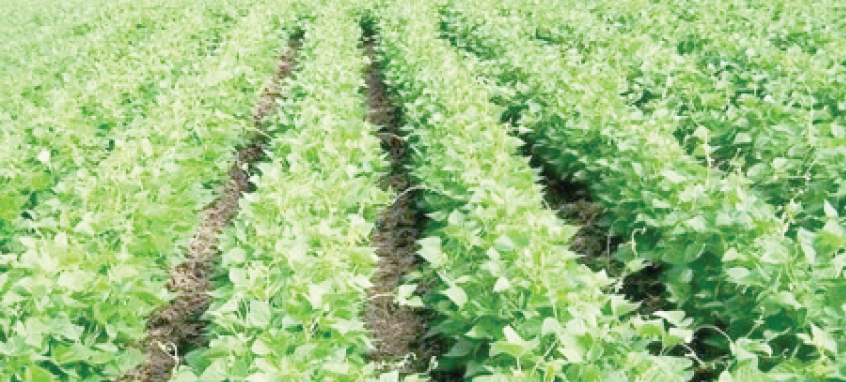Suitable land for maize, beans to decline in Africa – Report
Africa may likely face worsening food insecurity if concrete actions are not taken by governments across the continent. The State of Africa Environment (SOE) 2023 report by the Centre for Science and Environment (CSE), an India-based think-tank released last week in Nairobi, Kenya estimated that 65 per cent of the arable land in sub-Saharan Africa […]

A beans farm
Africa may likely face worsening food insecurity if concrete actions are not taken by governments across the continent.
The State of Africa Environment (SOE) 2023 report by the Centre for Science and Environment (CSE), an India-based think-tank released last week in Nairobi, Kenya estimated that 65 per cent of the arable land in sub-Saharan Africa is already degraded, which makes farmers lose about US$68million yearly.
“For more than three decades, the continent has been a net importer of agricultural products. But what is stifling is the change in the nature of food imports. The continent has been importing basic foodstuffs, such as dairy products, edible oils and cereals
“By 2080, arid and semi-arid areas could expand by 60 to 80 million hectares. Viable arable lands are predicted to decline, with 9 to 20 per cent becoming less suitable for agriculture. Suitable land for corn (maize) and beans—staple crops in the continent—could reduce by 20 to 40 per cent,” the report noted.
Israel-Palestine war: UN Security Council under scrutiny
A tale of Rabeh’s Fort in Dikwa
The report states that climate change crisis was worsening food insecurity problems in Africa, noting that “extreme hunger rose by 123 per cent in six years (2017 to 2021) among 10 of the world’s climate hotspots. Seven of these countries are in Africa.”
It states that experts on food security were not pleased by Africa’s governments’ refusal to acknowledge the global shortage of white maize, which is growing every day. In fact, a large number of them were urging quick adoption of other strategies, including accepting GMOs like South Africa and others to increase maize supply, regulate prices and save lives.
In 2023, despite various worldwide risks to agriculture, such as climate change, the report pointed out that South Africa overtook other African countries as the continent with the highest levels of food security. The accomplishment of the country may serve as an example for other underdeveloped countries in the area. The top spot on the list for the entire continent was taken by a nation from sub-Saharan Africa for the first time ever.
The SOE also recognised that Russia and Ukraine were a major source of food for about 50 countries, especially in terms of wheat, maize and sunflower oils. Most of these are developing countries in Asia and Africa that rely heavily on imports. Thirty-six of the 53 countries that experienced food crisis in 2021 relied on exports for more than 10 per cent of their total wheat imports.
However, the conflict between Russia and Ukraine had serious ramifications for Africa, which highlighted how vulnerable the food system has become in a globalised society where achieving food security is no longer seen as a priority at the national level.
